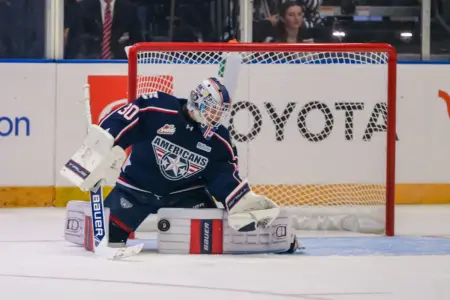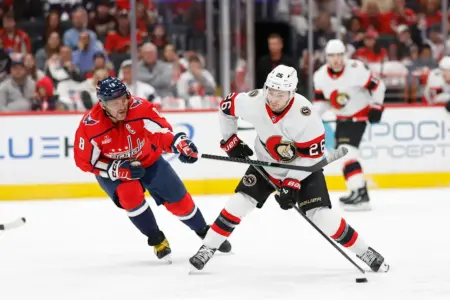The Maple Leafs’ Wage Relief Strategy
The Toronto Maple Leafs made a significant move on Thursday by placing veteran right winger Ryan Reaves on waivers. This decision is likely a strategic move to free up cap space, paving the way for potential trade acquisitions as the team aims to bolster its roster for the upcoming season. Reaves, a 36-year-old enforcer, has been a healthy scratch for about half of the season, and his lack of production—just two assists in 35 games—makes this move predictable. However, the bigger picture suggests a pattern of contract management that the Leafs have employed before, particularly with players nearing the twilight of their careers.
A Familiar Contract Trajectory
When the Leafs signed Reaves to a three-year contract in 2023, many observers immediately questioned the long-term viability of the deal. At the time, Reaves was nearing 37, and the idea that he would still be a valuable contributor to the team at age 39 seemed far-fetched. This skepticism is not unfounded, as the Leafs have a history of acquiring enforcers with limited remaining value and managing their contracts accordingly. A prime example is Kyle Clifford, who was acquired from St. Louis in November 2021. Despite his Stanley Cup championship with the Los Angeles Kings, Clifford played only 23 games with the Leafs that season and only two more after that. The majority of his time since then has been spent with the Toronto Marlies in the AHL, a clear indication of the Leafs’ strategy for players in similar positions.
The Enforcer’s Dilemma
In the modern NHL, the role of an enforcer like Reaves is becoming increasingly scarce. These players, often known for their physical presence and willingness to drop the gloves, are a luxury few teams can afford, especially when they have limited offensive contributions. Reaves, who only fought once this season, is a case in point. His primary value has always been in his ability to protect his teammates and provide a physical edge, but as he ages, these attributes diminish. The Leafs’ decision to place him on waivers reflects a pragmatic approach to roster management, recognizing that his contributions have waned and that the financial burden of his contract is better managed in the minors or by another team.
The Personal Side of the Move
While the move is a business decision, it’s important to recognize the personal impact on Reaves. He has played in 15 NHL seasons, a testament to his durability and the respect he has earned in the league. Despite his limited skill set, Reaves has always been well-liked by his teammates, and his strong work ethic and team-first attitude have been valuable off the ice. The Leafs’ decision to waive him doesn’t diminish his contributions to the team or his legacy in the sport. However, it does signal the end of a significant chapter in his NHL career. Reaves can take pride in his longevity and the respect he has garnered, but the harsh reality of the league often leaves little room for sentiment.
Anticipating the Future
If Reaves clears waivers, he is expected to join the Toronto Marlies in the AHL for the remainder of this season and likely the next. Given his age and the nature of his contract, it would be surprising if another NHL team claimed him. By the end of his deal, retirement will likely be the next logical step. This trajectory is common for enforcers and players with similar roles, who often find themselves in the AHL or out of the league as their physical prowess declines. The Leafs’ move, while pragmatic, also underscores the enduring challenge of managing a roster where every dollar and every roster spot counts.
The Broader NHL Context
Reaves’ situation is emblematic of the broader changes in the NHL. Teams are becoming more analytically driven, emphasizing skills like speed, agility, and offensive prowess over brute physicality. Enforcers, once a staple of team rosters, are now seen as liabilities in terms of both performance and salary cap management. The Leafs, like many other smart organizations, are adapting to this new landscape by making tough but necessary decisions to stay competitive. While it may be a difficult pill for Reaves to swallow, the move ensures that the Leafs can maintain flexibility and focus on acquiring players who can contribute more significantly to their playoff ambitions.
Follow the latest news and trending stories by subscribing to The Hockey News and stay engaged by commenting on THN.com.











